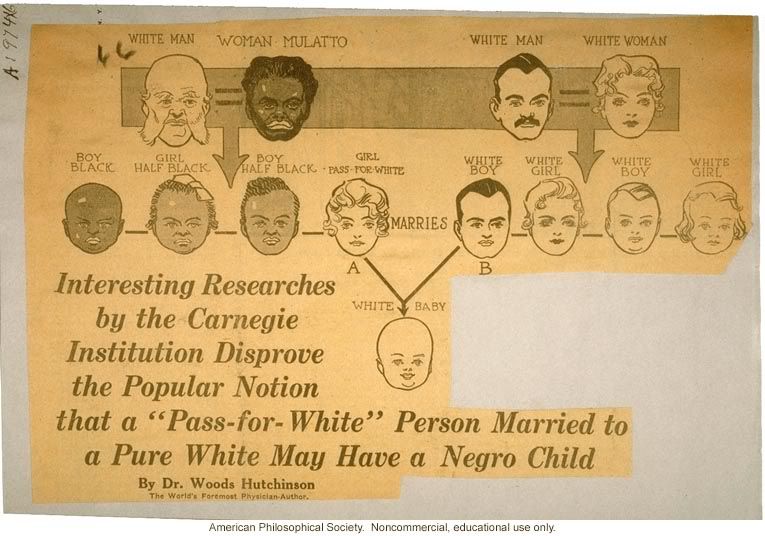Old Men (and Women) and Bigger Ears
GROWING OLDER
Ears keep growing as you age
Michael Woods
Toledo Blade
November 10, 2003
Why do old men have big ears?
The old men-big ears idea is no cliche or optical illusion that occurs because ears look bigger relative to head size on people with less hair.
A dozen scientific studies have tackled the topic, including the ear-size landmark, done in 1999 at the University of Milan in Italy. Scientists used computer analysis to document the "normal" sizes of facial structures and how structures change as people age.
Ears, they found, do get larger with age. And the study found that old women have big ears too -- although hair styles often hide it.
A British doctor named James A. Healhcote may have pioneered modern research on the topic with a 1995 study that involved several other physicians. They measured ear length in hundreds of patients, aged 30 to 93, and concluded that ears grow an average of 0.01 inches a year.
Japanese scientists confirmed it in a 1996 study of 400 people.
Researchers say that people who live to old age have bigger ears because there's more time for their ears to grow.
One London scientist immediately challenged that in a report published in the British Medical Journal. He argued that old men's ears look bigger because of a trend toward smaller ears in young people. Maybe it's because of passive smoking or changes in parenting, he said, noting that older people got their ears scrubbed or "boxed" -- smacked as punishment -- regularly.
A specialist on aging from Cambridge, England, wrote to the BMJ and said the findings might mean ears are a "biological marker" for longevity. Men with small ears may die younger, leaving a population of healthier old people with big ears.
Some doctors advise that men with the "positive ear lobe crease" pay special attention to controlling heart disease risk factors like high blood pressure and cholesterol and cigarette smoking.
BMJ 1995;311:1668 (23 December)
INSIDE STORIES
GROWING OLDER
Ears keep growing as you age
Michael Woods
Toledo Blade
November 10, 2003
Why do old men have big ears?
The old men-big ears idea is no cliche or optical illusion that occurs because ears look bigger relative to head size on people with less hair.
A dozen scientific studies have tackled the topic, including the ear-size landmark, done in 1999 at the University of Milan in Italy. Scientists used computer analysis to document the "normal" sizes of facial structures and how structures change as people age.
Ears, they found, do get larger with age. And the study found that old women have big ears too -- although hair styles often hide it.
A British doctor named James A. Healhcote may have pioneered modern research on the topic with a 1995 study that involved several other physicians. They measured ear length in hundreds of patients, aged 30 to 93, and concluded that ears grow an average of 0.01 inches a year.
Japanese scientists confirmed it in a 1996 study of 400 people.
Researchers say that people who live to old age have bigger ears because there's more time for their ears to grow.
One London scientist immediately challenged that in a report published in the British Medical Journal. He argued that old men's ears look bigger because of a trend toward smaller ears in young people. Maybe it's because of passive smoking or changes in parenting, he said, noting that older people got their ears scrubbed or "boxed" -- smacked as punishment -- regularly.
A specialist on aging from Cambridge, England, wrote to the BMJ and said the findings might mean ears are a "biological marker" for longevity. Men with small ears may die younger, leaving a population of healthier old people with big ears.
Some doctors advise that men with the "positive ear lobe crease" pay special attention to controlling heart disease risk factors like high blood pressure and cholesterol and cigarette smoking.
BMJ 1995;311:1668 (23 December)
INSIDE STORIES
Why do old men have big ears?
James A Heathcote, general practitioner a
a South View Lodge, Bromley, Kent BR1 3DR
In July 1993, 19 members of the south east Thames faculty of the
Royal College of General Practitioners gathered at Bore Place, in
Kent, to consider how best to encourage ordinary general practitioners
to carry out research. Some members favoured highly structured
research projects; others were fired by serendipity and the
observations of everyday practice. Someone said, "Why do old
men have big ears? Some members thought that this was obviously
true--indeed some old men have very big ears--but others doubted it,
and so we set out to answer the question "As you get older do
your ears get bigger?" a South View Lodge, Bromley, Kent BR1 3DR
Methods and results
Four ordinary general practitioners agreed to ask patients attending for routine surgery consultations for permission to measure the size of their ears, with an explanation of the idea behind the project. The aim was to ask consecutive patients aged 30 or over, of either sex, and of any racial group. Inevitably it was sometimes not appropriate--for example, after a bereavement or important diagnosis--to make what could have seemed so frivolous a request, and sometimes (such as when a surgery was running late) patients were not recruited. The length of the left external ear was measured from the top to the lowest part with a transparent ruler; the result (in millimetres), together with the patient's age, was recorded. No patients refused to participate, and all the researchers were surprised by how interested (if amused) patients were by the project. The data were then entered on to a computer and analysed with Epi-Info; the relation between length of ear and the patient's age was examined by calculating a regression equation.
|
It seems therefore that as we get older our ears get bigger (on average by 0.22 mm a year).
Comment
A literature search on Medline by the library at the Royal College of General Practitioners that looked for combinations of "ears, external," "size and growth," "males," and "aging" produced no references.
A chance observation--that older people have bigger ears--was at first controversial but has been shown to be true. For the researchers the experience of involving patients in business beyond their presenting symptoms proved to be a positive one, and it was rewarding to find a clear result. Why ears should get bigger when the rest of the body stops growing is not answered by this research. Nor did we consider whether this change in a particular part of the anatomy is a marker of something less easily measurable elsewhere or throughout the body.
I acknowledge the generous help of Drs Colin Smith and David Armstrong and Ms Sandra Johnston with the data analysis; the work of my fellow data collectors, Drs Ian Brooman, Keren Hull, and David Roche; and the support of all members of the Bore Place group.
BMJ 1996;312:582 (2 March)
Letters
Letters
Lifelong follow up study of young people is needed
EDITOR,--James A Heathcote reports a correlation between ear
length and age in a sample of adult patients, but can he substantiate
his conclusion that "as we get older our ears get bigger"?1 An
alternative (and much more intriguing) interpretation of the
findings is that a secular trend towards smaller ears has occurred
during most of the present century. Have the senior citizens in the
sample had big ears all their adult lives, and will the younger
members keep their smaller ones? If so, what environmental factors,
presumably operating during childhood or adolescence, might have
been responsible? I wonder whether there has been a steady decline
in the boxing or scrubbing of children's ears, or whether big ears
are simply another result of passive smoking. This interpretative
doubt seems to call for extended pinnametric research by Heathcote
and his successors: the question can be resolved only by a lifelong
follow up study of a cohort of young patients.
Professor of haematology 4 Ruskin Close, London NW11 7AU R M Hardisty
Letters
Why do old men have big ears?
The Chinese believe that long ears predict longevity ...
EDITOR,--Readers may be interested to know that in the Chinese art
of physiognomy one longstanding belief is that long ears predict
longevity. There are several possible interpretations of the
observed (cross sectional) positive correlation between age and ear
size in James A Heathcote's study.1
Heathcote suggests that as we get older our ears get bigger. Another
interpretation may be that big ears predict survival: men with
smaller ears may die selectively at younger ages. Ear size or
pattern, or both, may be a marker of some biological process related
to health. Several reports have related the diagonal earlobe crease
to coronary heart disease and all cause mortality.2
3
Petrakis noted the diagonal earlobe crease in statues of Emperor
Hadrian and postulated that he may have had coronary heart disease
and congestive heart failure.4
However, I don't think that I would go as far as my grandmother (one
of the last generation of Chinese women with bound feet), whom I
remember admonishing me in early childhood to stretch my ears daily
to ensure long life. Professor of clinical gerontology Clinical Gerontology Unit, Addenbrooke's Hospital, Cambridge CB2 2QQ
Kay-Tee Khaw



























![[Most Recent Quotes from www.kitco.com]](http://www.kitconet.com/images/quotes_special.gif)






Tidak ada komentar:
Posting Komentar